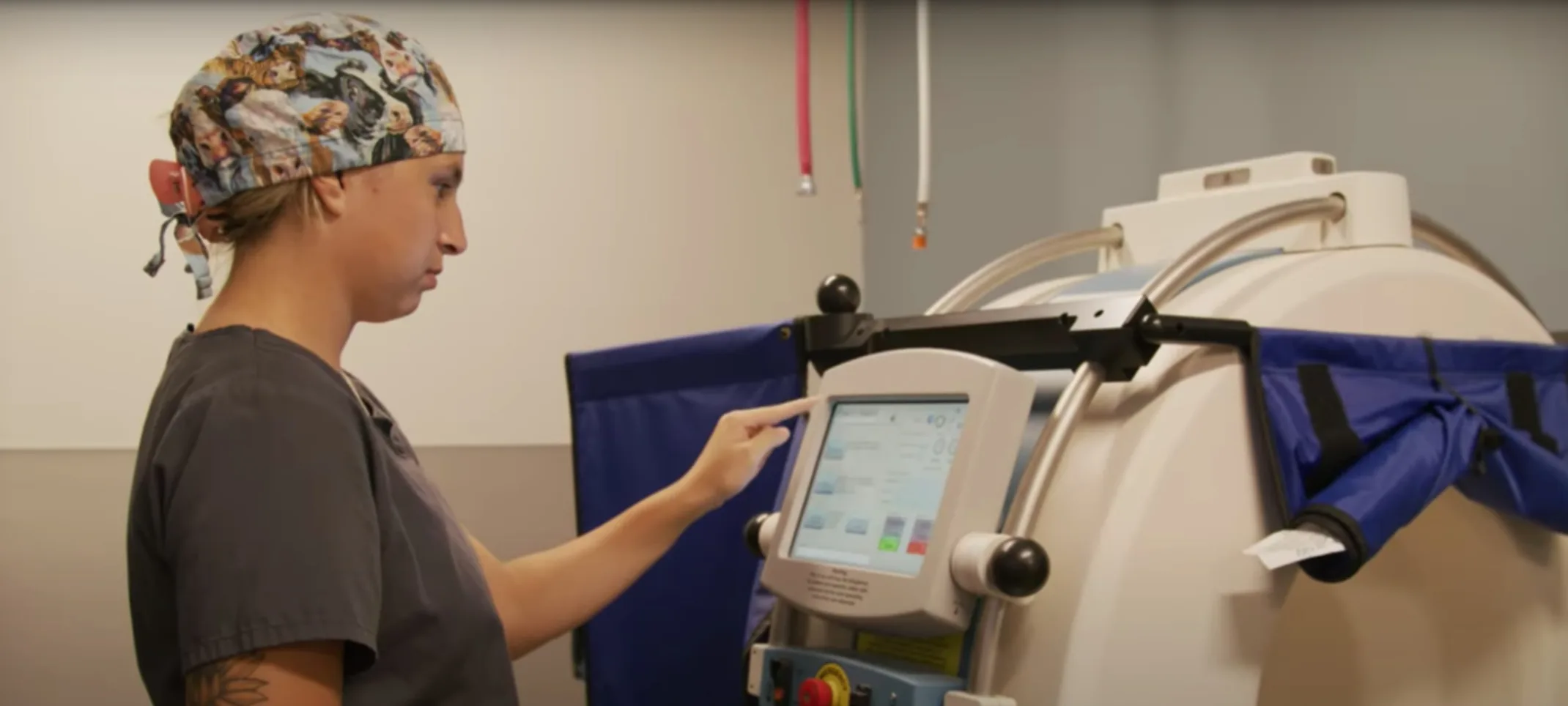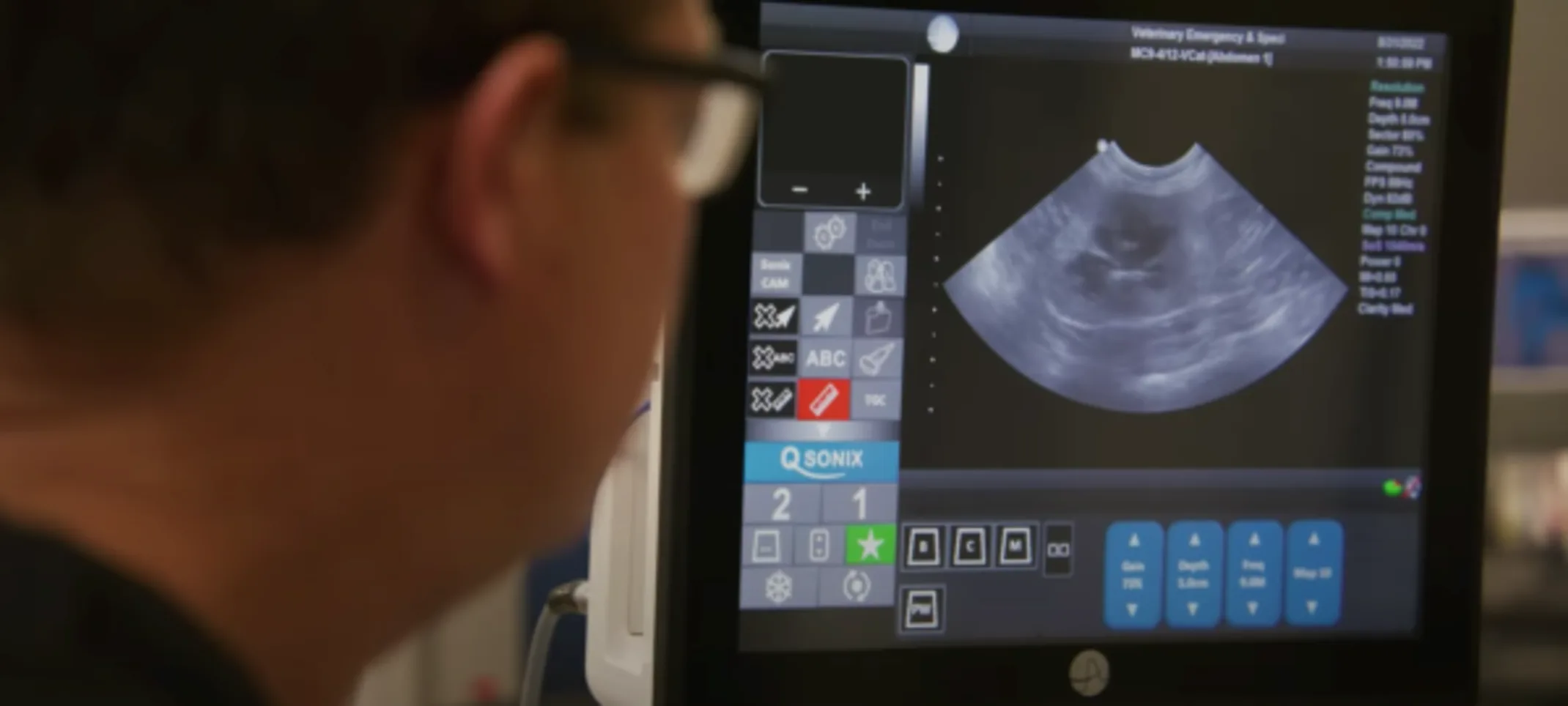Veterinary Emergency & Specialty Hospital (VESH) - Wichita
Accurate and complete interpretations of imaging studies are critical to developing an effective treatment plan. Our digital images are guided and interpreted by experts. When our diagnostic reports are final, we work with your primary veterinarian as a team to provide the best level of care for your pet. The Radiology Department is typically available Mondays, by appointment.
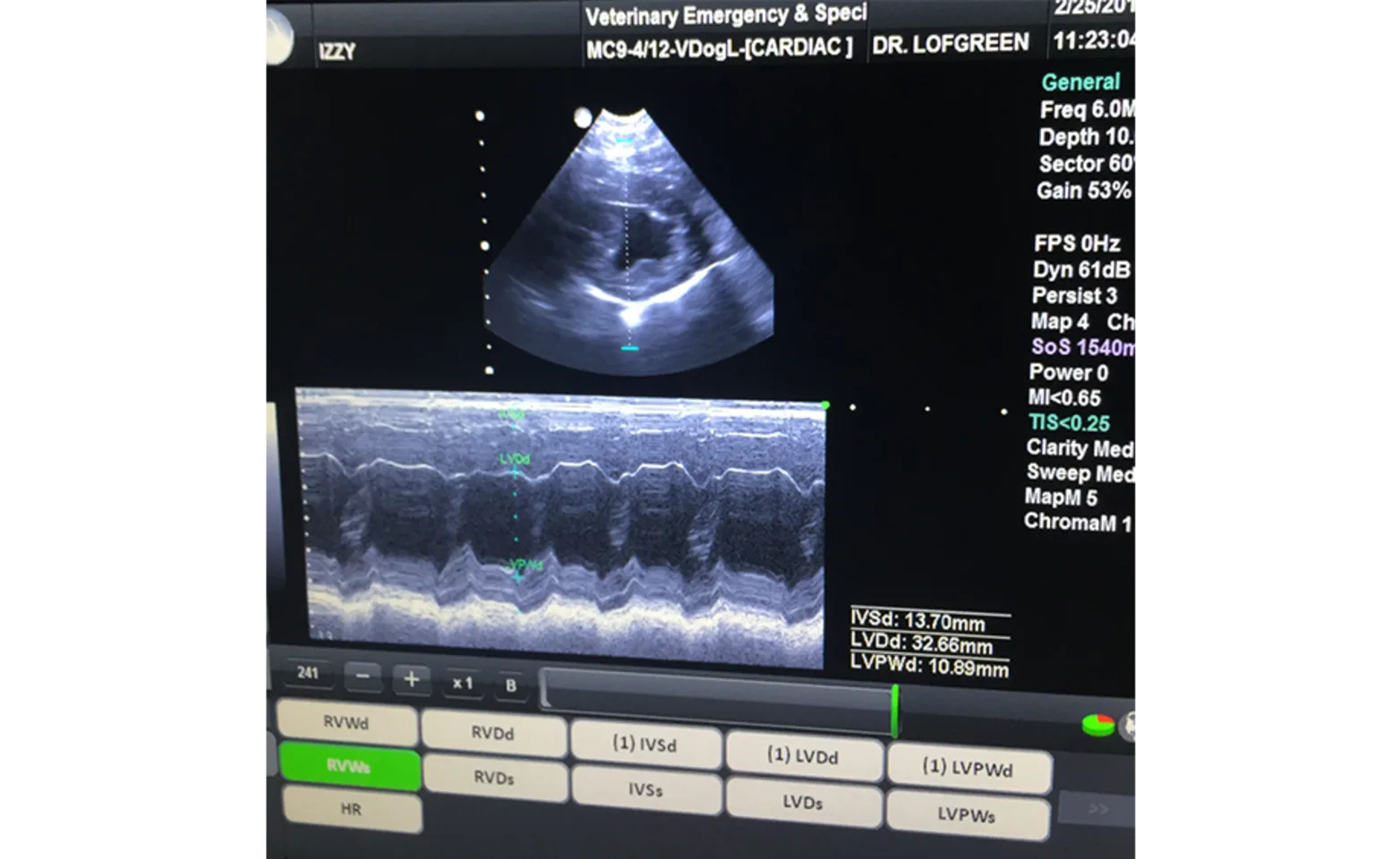
Echocardiography
This diagnostic imaging tool allows for a closer, incredibly detailed view of the heart’s function. Echocardiography allows specific measurements that lead to more precise diagnoses and more effective treatment plans. Echocardiography not only helps veterinarians diagnose heart disease, but also monitors the progress of ongoing treatment. An echocardiogram is used to evaluate heart disease, fluid around the heart or lungs, heart murmurs, or tumors.
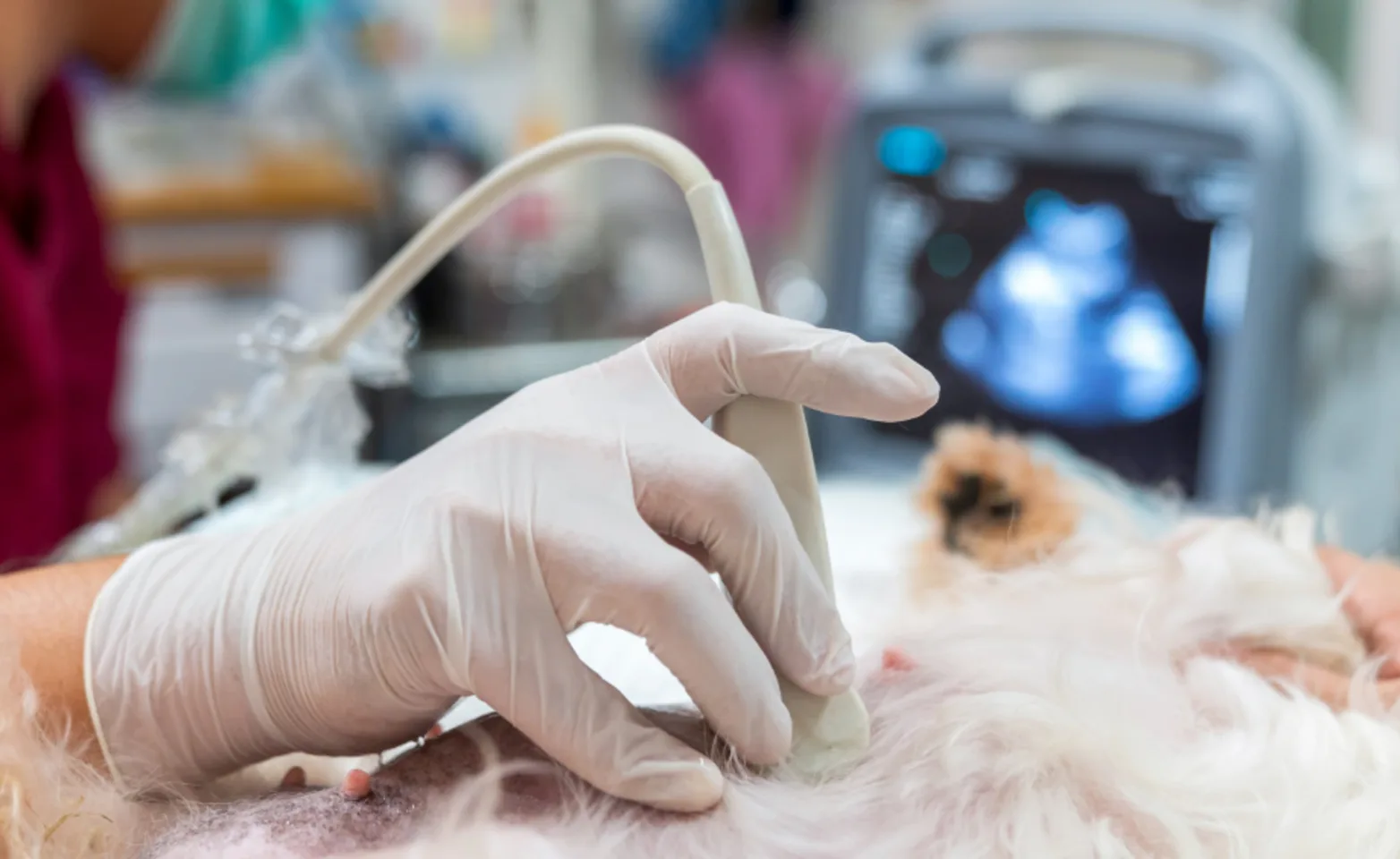
Ultrasound
This diagnostic tool uses sound waves to allow doctors to view inside the body, without radiation. Ultrasound is extremely useful in evaluating and identifying changes in abdominal organs. Ultrasound examinations are non-invasive and most often do not require sedation as it is painless. The exception would be a pet that is very frightened or fractious.
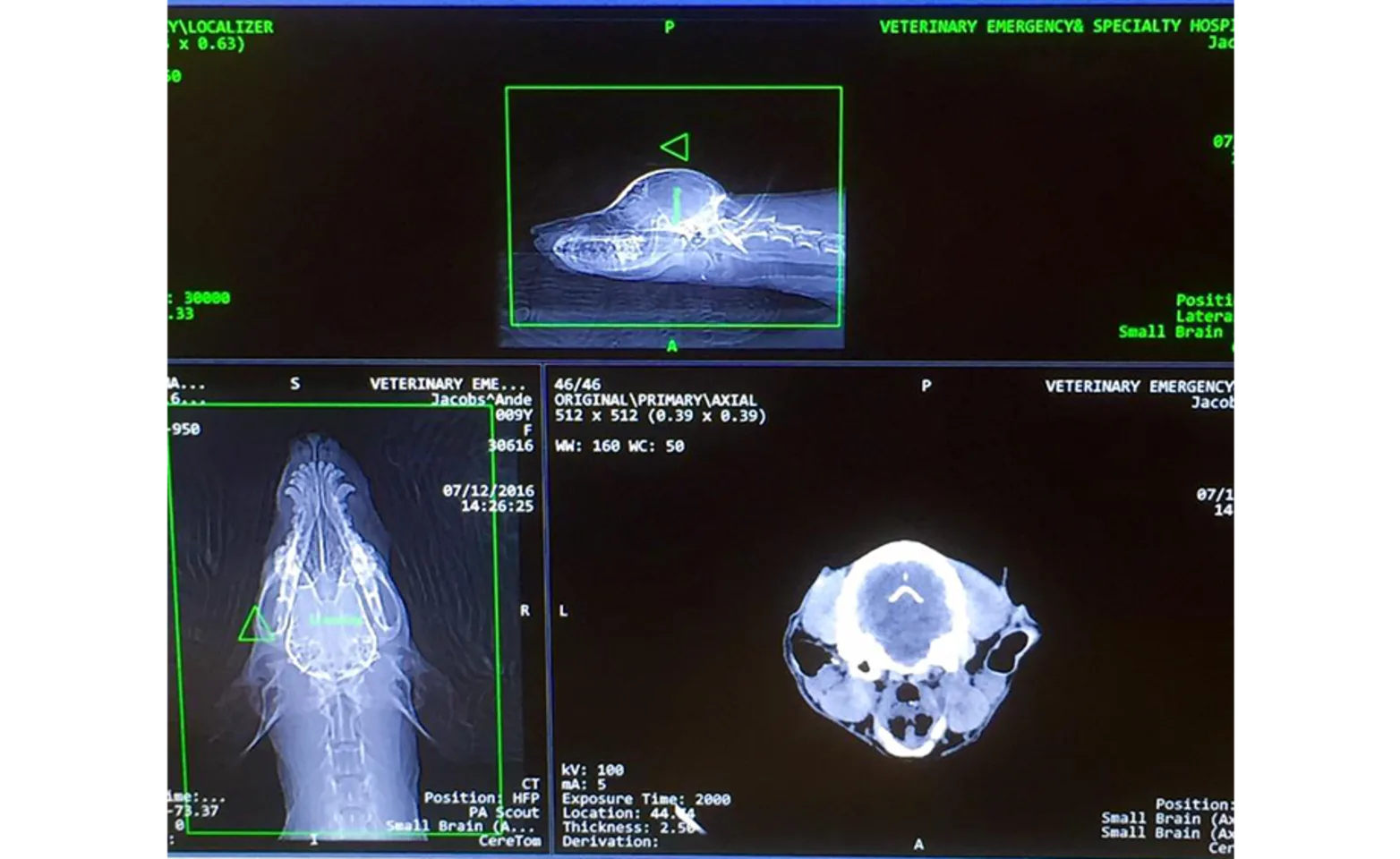
Computed Tomography (CT)
A CT scan is an X-ray technique that allows veterinarians to see internal structures in cross-sectional image “slices,”. It is often used for parts of the body that are typically hard to evaluate with traditional radiography. CT scans can help veterinarians evaluate bone tumors and fractures, locate tumor margins, assess internal injuries, guide surgery, and detect and monitor cancer and other anomalies.
Our Veterinarian
Imaging reports will be shared with the pet's primary veterinarian for review.
Available Mondays by Appointment
